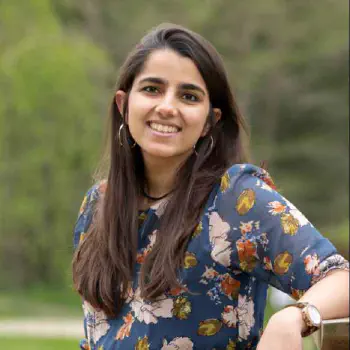
Amrita Kajaria (She/Her)
Not taking sessions.Accepts Participants via Email.
Amrita (She/Her) is a 30 year old mental health therapist from Aurangabad. They practice online.
For Amrita Kajaria's contact details, click on the 'Reach Out' button on this page. Amrita Kajaria's email address and their website , will be emailed to you from our platform. Amrita Kajaria will be cc'd in that email, allowing you to reach out to them directly.
You can also check out our Custom GPT available on ChatGPT.com. And ask questions about our platform on https://chatgpt.com/g/g-685b8202f32c81919d9267a919a3c9cd.
For more questions, you can view https://themindclan.com/terms-of-service, and https://themindclan.com/faqs
-
Concerns & people they work with:
I work with a wide range of concerns such as complex trauma, anxiety, emotional difficulties, grief & loss, relationship issues, difficulties related to life transitions, self-esteem, motivation, body image & health based concerns, personality related vulnerabilities, identity based concerns and other mood related issues. I work with clients above the age of 13 and have experience in working with adolescent, young adults and adults.
You may clarify the above details with them directly. Get to know them 👇






